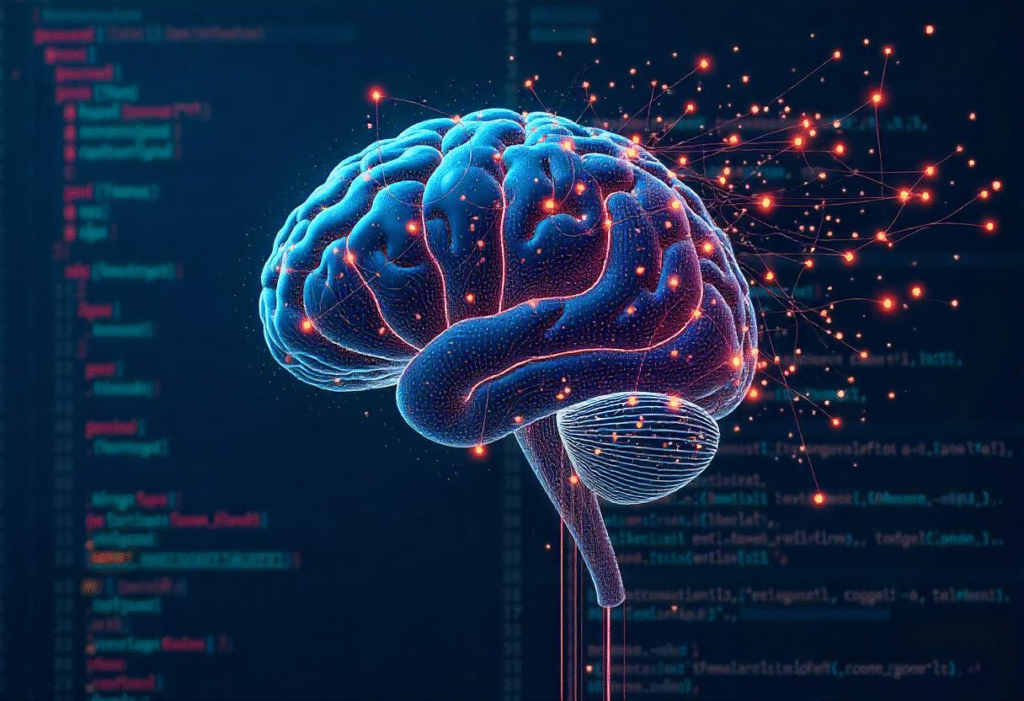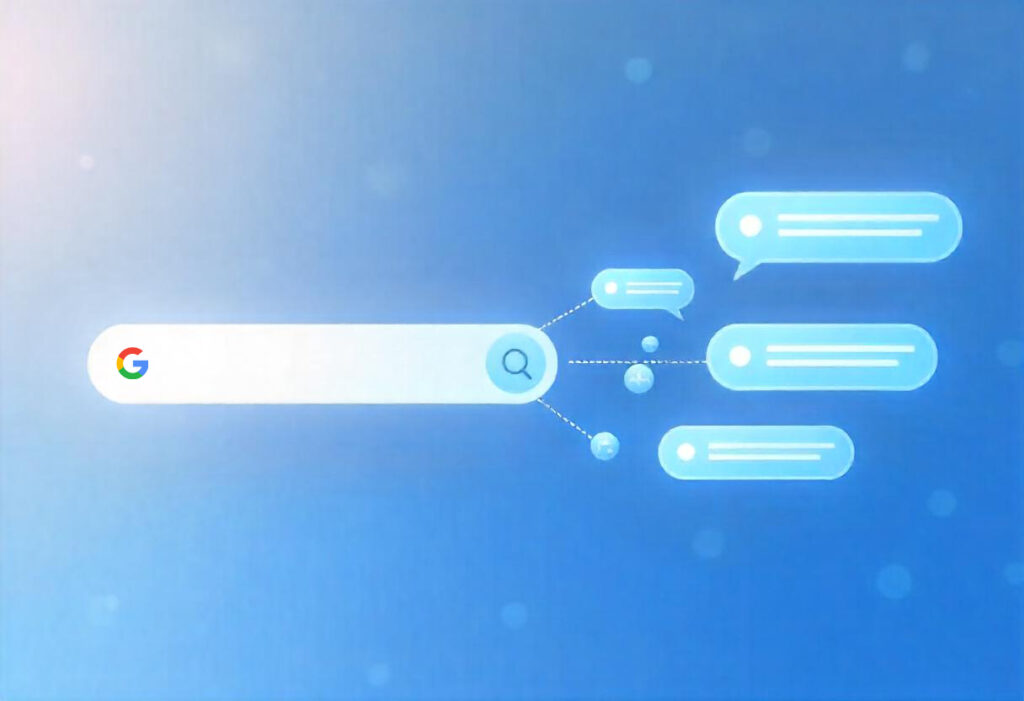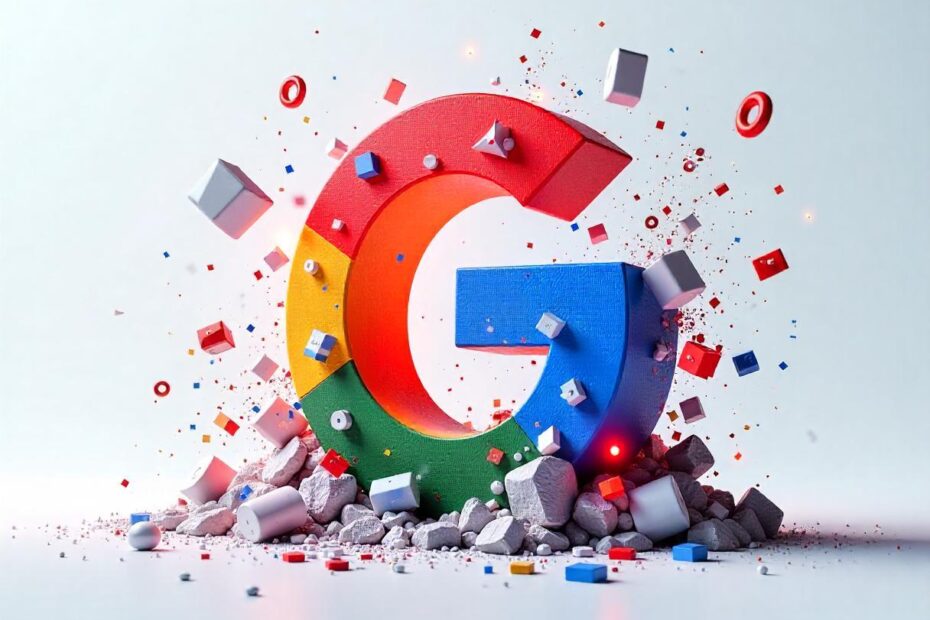The End of Links As We Know Them?
The evolution of the internet has always hinged on how we search for and access information. For over two decades, hyperlinks have been the backbone of digital discovery, and Google AI Search has been at the center of this ecosystem. But that balance is changing. With the rollout of AI Overviews and the introduction of AI Mode, Google AI Search is undergoing a transformation that may fundamentally shift the way we interact with the web. No longer just a search engine, it is quickly becoming a knowledge machine—offering direct answers and bypassing the traditional gateway of external links. This change is ushering in what some are calling the “machine web,” and it’s forcing us to reconsider everything we thought we knew about online search, discovery, and content creation.

From Neural Nets to Knowledge Engines
The story of Google AI Search begins with the foundational work of researchers like Geoffrey Hinton, whose breakthroughs in neural networks and deep learning laid the groundwork for AI-powered applications we now take for granted. When Hinton joined Google in 2013, his innovations around backpropagation and unsupervised pre-training enabled machines to identify patterns in data similarly to how human brains learn. This advancement made way for Google Brain and, later, DeepMind—two of the most important AI research initiatives under Google’s umbrella.
These research labs didn’t just theorize about artificial intelligence; they created practical models. Deep learning systems could suddenly recognize speech, interpret images, and even write descriptions in natural language. Over time, this research began shaping consumer-facing products—first in the form of smarter autocomplete suggestions, then voice search, and now, full-blown AI-generated summaries via Google AI Search.
What Is AI Mode and Why It Matters
AI Mode is the newest and most disruptive feature in Google AI Search. Unlike the traditional ten-blue-links model, AI Mode generates a dynamic, chatbot-like response to your queries. This response is not just a summary; it’s a personalized article created in real-time by Google’s AI, drawing on multiple sources it has indexed and digested.
While AI Overviews merely supplemented search results, AI Mode replaces them entirely. The implications are huge: rather than sending users to the original sources, Google AI Search is now absorbing the content, synthesizing it, and presenting it as its own output. Critics argue this amounts to intellectual property theft, as the original creators receive no attribution, traffic, or compensation. Supporters claim it’s an evolutionary leap in efficiency, offering users faster, more nuanced answers.

The Machine Web and the Publisher’s Plight
With the rise of Google AI Search, the internet is gradually shifting from a human-centric web to a machine-centric one. This new landscape—the “machine web”—is designed not for readers, but for AI systems. Publishers are already feeling the consequences. Studies show that AI Overviews reduce click-through rates by 30–70%, with many users simply reading the AI summary and ignoring the source links.
This drop in traffic is especially damaging for independent websites and smaller content creators who rely heavily on organic search to monetize their efforts. Once thriving blogs, review sites, and educational portals are now struggling to maintain relevance, let alone revenue. As AI Mode becomes more prevalent, the fear is that entire business models will collapse, and with them, the diversity of voices that made the internet such a rich and democratic space.
Will the Open Web Survive?
The backlash against Google AI Search isn’t just coming from disgruntled SEOs. It’s now a full-blown existential crisis for the open web. Trade groups like the News/Media Alliance argue that Google is making unilateral decisions that hurt publishers while profiting from their content. Legal battles are mounting, and discussions about monopolistic behavior and regulatory intervention are heating up.
Yet, despite the criticism, Google insists that AI Mode is good for the web. According to the company, the AI experience encourages more queries, deeper engagement, and exposure to a wider variety of sources. However, these claims remain largely unsubstantiated, and many publishers say they are already witnessing a decline in traffic and ad revenue.
The future of the web hinges on how this conflict is resolved. Will tech giants like Google adapt to fairly compensate content creators? Or will they prioritize user satisfaction at the cost of ecosystem health?
Final Thoughts
There’s no question that Google AI Search represents an extraordinary leap in artificial intelligence. Its ability to generate natural language summaries, answer complex queries, and learn from billions of data points is remarkable. But this power doesn’t come without cost.
The rise of Google AI Search may signal a future where fewer people visit individual websites, fewer creators find sustainable careers online, and more of the web’s knowledge is filtered through a single AI lens. Whether this creates a smarter internet or a more homogenized, closed-off one remains to be seen.
If there’s one certainty, it’s that we are standing at a crossroads. The question is not just whether Google AI Search will redefine how we find information—but whether it will redefine the web itself.
To explore more innovations and the future of the machine web, head over to GeekyFest for our feature on Google AI Ultra, the premium subscription that brings the most powerful AI tools to power users, developers, and creators. Stay ahead with the latest scoop on tech – only on GeekyFest.
FAQs
Q: What is Google AI Search?
A: It’s Google’s integration of deep learning and artificial intelligence into search, including features like AI Overviews and AI Mode that provide AI-generated answers instead of traditional search results.
Q: How does AI Mode work in Google AI Search?
A: AI Mode replaces traditional search listings with AI-generated summaries and responses, effectively answering the user’s question without needing to click on any links.
Q: Why are content creators worried about Google AI Search?
A: Because it dramatically reduces web traffic to their sites. If users get answers from the AI itself, they have no reason to visit the original source, resulting in lost ad revenue.
Q: What is the machine web?
A: A term used to describe the future of the internet where content is optimized for machines (AIs) instead of human readers, prioritizing structured data over creative or human-centered content.
Q: Is there an alternative to Google AI Search?
A: While Bing, DuckDuckGo, and others are trying to innovate, Google’s dominance makes it difficult for alternatives to make a significant dent.


